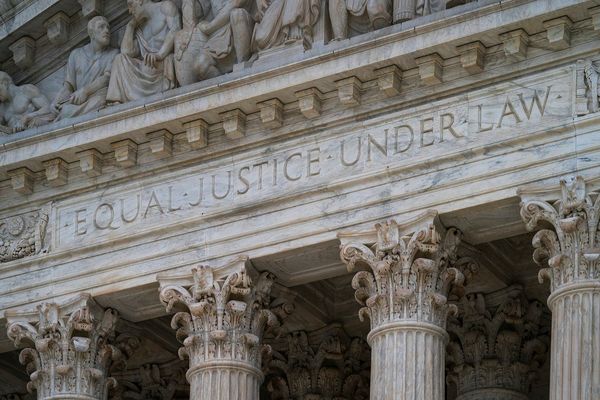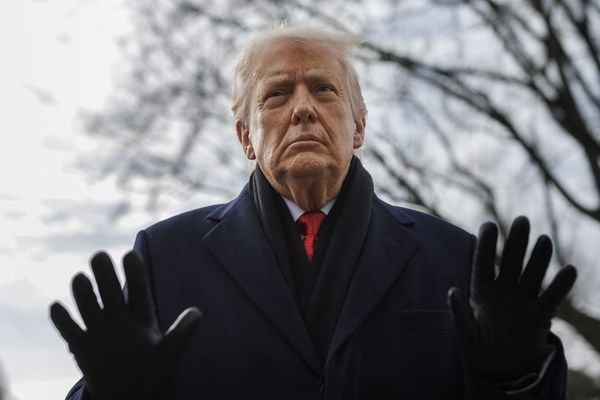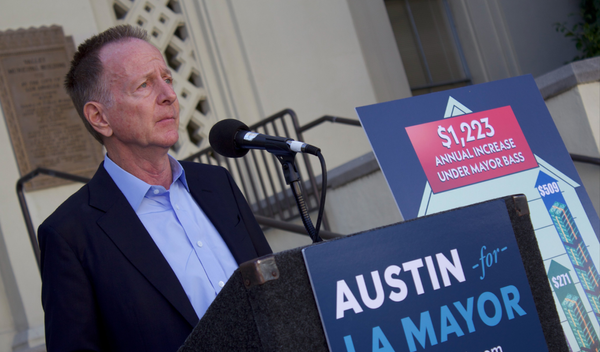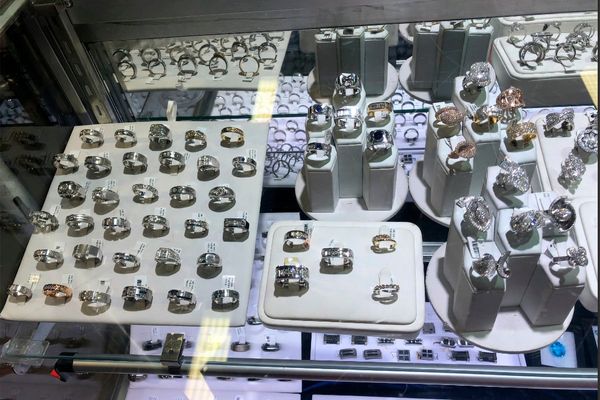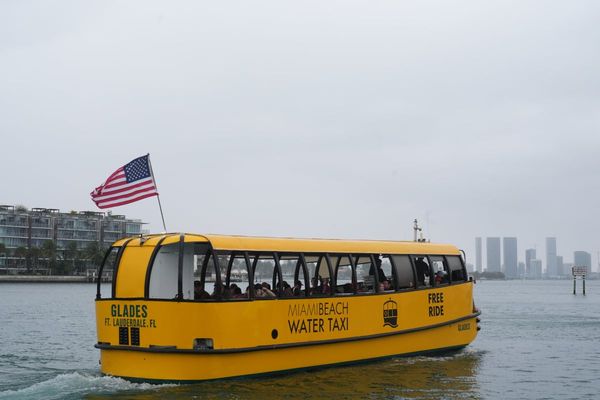
The no campaign in the referendum on an Indigenous voice to parliament is targeting migrant communities and parts of Sydney that voted strongly against marriage equality in the 2017 postal vote, Warren Mundine has said.
The campaign believes there is a cohort of religious and socially conservative voters who are open to its messaging on implications of the voice.
“That’s why we’re choosing the mosques, Hindu communities and temples and the like,” Mundine said. “Even though I was a yes voter for same-sex marriage, we saw the polling from the plebiscite. In western Sydney, it was 70% against because of their religious beliefs and conservatism, and so we’re going to sit down and have a chat to [those communities].”
Twelve federal electorates in Sydney, all in the west and south of the city, voted against same-sex marriage. Only Watson (69.6%) and Blaxland (73.9%) reached close to the mark claimed by Mundine, though several others were comfortably above 60%.
Mundine, who leads the Recognise a Better Way group that is part of the no campaign, said the strategy was to tap into the “unheard majority” who he claimed were often ignored, and in particular to engage with Australians who were born overseas, or whose parents were.

“We’re very respectful of them and we go and listen to them, and they want to hear what we’ve got to say,” he said.
Greater Sydney is a key battleground in the referendum according to Steve Khouw, a former Liberal party member who is campaigning for a no vote. The former reality TV star is targeting multicultural communities, including Sydney’s large Chinese Australian population.
He claimed that many in the community were worried about the voice to parliament. “It is really divisive. It’s divisive not just in mainstream Australia, not even just in the political arena but in your neighbours, in your family, even in your own culture, and I know among the Aboriginal community as well … I’ve been labelled a racist.”
Khouw organised a no campaign event on behalf of Fair Australia, who funded the event, in the Sydney suburb of Burwood this month, featuring Mundine, which drew a crowd of about 150 people. The event was pitched as a way to hear “the truth about the voice”.
“Those that came, I called them back to see what did they think about it, and if they’re going to talk about it with their families, their friends and neighbours. That’s what it’s all about really – spreading the information and using word of mouth,” Khouw said.
Khouw said about a dozen events were planned in different parts of Sydney before October, and it was hoped more would follow in Newcastle and Wollongong.
On Friday Mundine is due to speak again at the Berala Community Club in western Sydney, under the auspices of Multicultural Voices Against the Voice. Also on the bill are the former state Labor MP Tania Mihailuk, now with One Nation, and Michael O’Neill of the Informed Medical Opinions party, which has called for a royal commission into the alleged harms caused by vaccinations.
Shuhba Kumar is president of the Indian Club in the Hills district of Sydney. The club is hosting an event on the referendum this month, with both sides of the debate presenting their views in the hope of allowing voters to “make their own minds up”, Kumar said.
Kumar said she was concerned about misinformation, particularly among people from non-English-speaking backgrounds, “not just in the Indian community”.
“Some people say that their property will not be safe, that they have to give some of these people money, they will lose rights on their property. I don’t know where they are getting these opinions from.
“I think the main issue here is there is no clarity,” Kumar said. “That clarity is not there and that is creating a lot of confusion. I’m hoping people can go and ask and get some clarity when both sides are at the forum.
“They should do a better job at reaching multicultural communities. But again, they should really clarify the issues … and Indigenous people’s needs, and how it will improve lives. There needs to be a bit more substance … from the yes side.”
What has happened already?
The Albanese government has put forward the referendum question: "A Proposed Law: to alter the Constitution to recognise the First Peoples of Australia by establishing an Aboriginal and Torres Strait Islander Voice. Do you approve this proposed alteration?"
The PM also suggested three sentences be added to the constitution:
- There shall be a body, to be called the Aboriginal and Torres Strait Islander Voice.
- The Aboriginal and Torres Strait Islander Voice may make representations to the Parliament and the Executive Government of the Commonwealth on matters relating to Aboriginal and Torres Strait Islander peoples;
- The Parliament shall, subject to this Constitution, have power to make laws with respect to matters relating to the Aboriginal and Torres Strait Islander Voice, including its composition, functions, powers and procedures.
How would it work?
The voice would be able to make recommendations to the Australian parliament and government on matters relating to the social, spiritual and economic wellbeing of Aboriginal and Torres Strait Islander people.
The voice would be able to table formal advice in parliament and a parliamentary committee would consider that advice. But the voice co-design report said all elements would be non-justiciable, meaning there could not be a court challenge and no law could be invalidated based on this consultation.
How would it be structured?
The co-design report recommended the national voice have 24 members, encompassing two from each state, the Northern Territory, ACT and Torres Strait. A further five members would represent remote areas and an additional member would represent Torres Strait Islanders living on the mainland.
Members would serve four-year terms, with half the membership determined every two years.
Shireen Morris, a constitutional lawyer and director of the Radical Centre Reform Lab at Macquarie University, has been campaigning for the yes vote among multi-faith and multicultural communities.
“It’s up to us to fight lies with good information and to fight fear with love,” she said.
Morris said many culturally and linguistically diverse Australians were vocal in support of the voice as they faced struggles similar to those of First Nations people.
“Multicultural Australians are such an important part of the voting populations. We make up a significant proportion of Australian voters now,” she said.
“[They] can be a decisive vote as we’ve seen in national elections. They’ll be really important in the upcoming referendum.”
She said being properly informed was everyone’s responsibility.
“There are materials available, but people need to access them and share them. So advocates need to do more, but community members themselves need to do more.
“If you’ve got questions, go out, seek the information and share it.”
